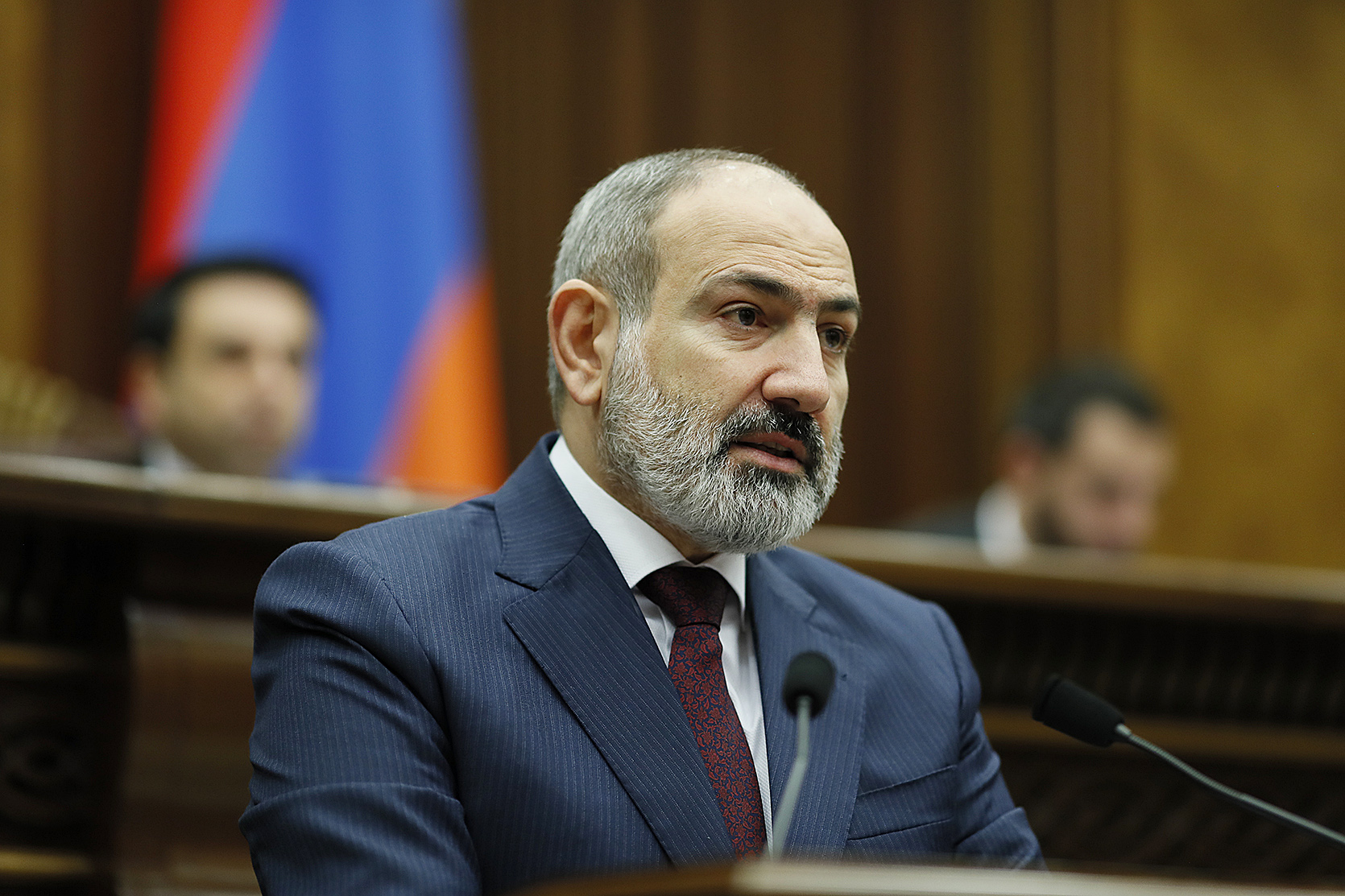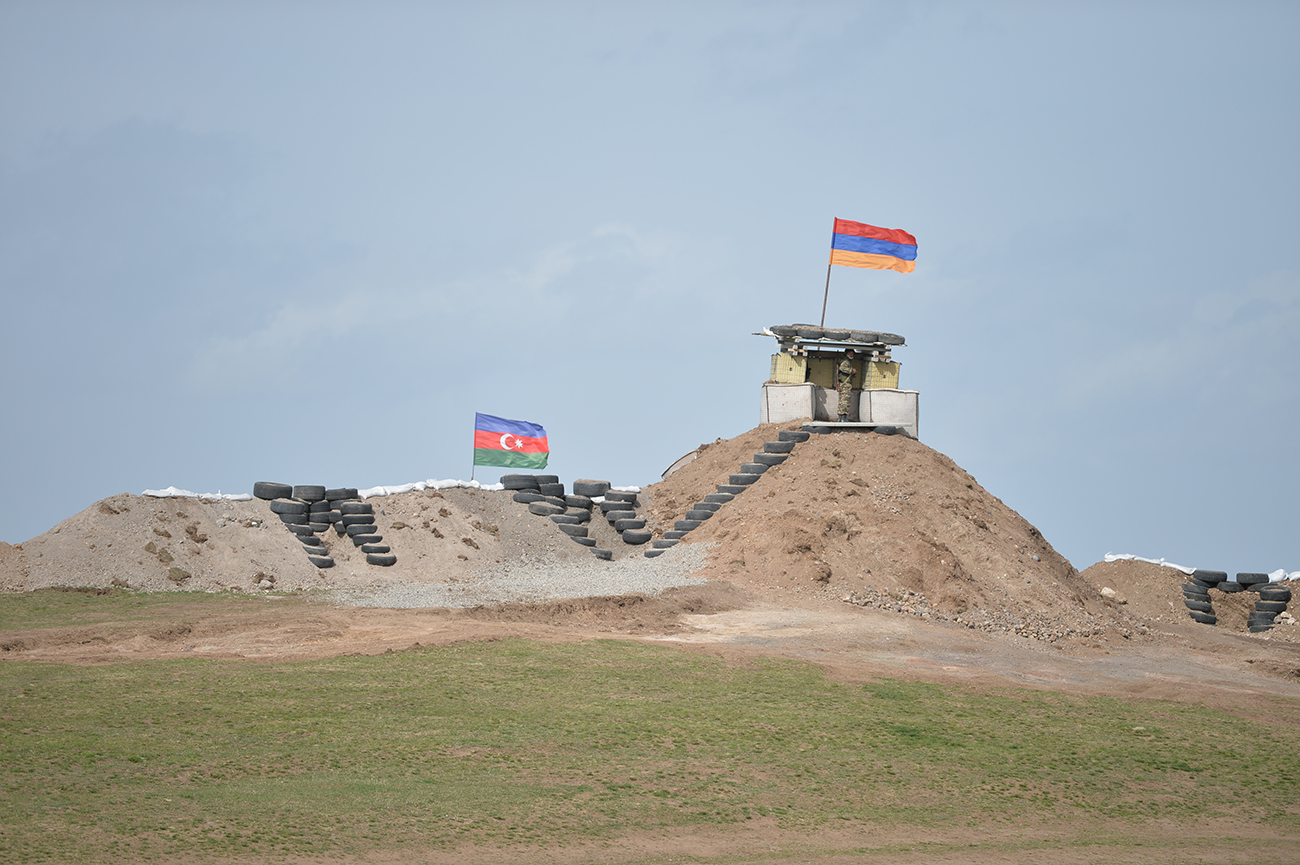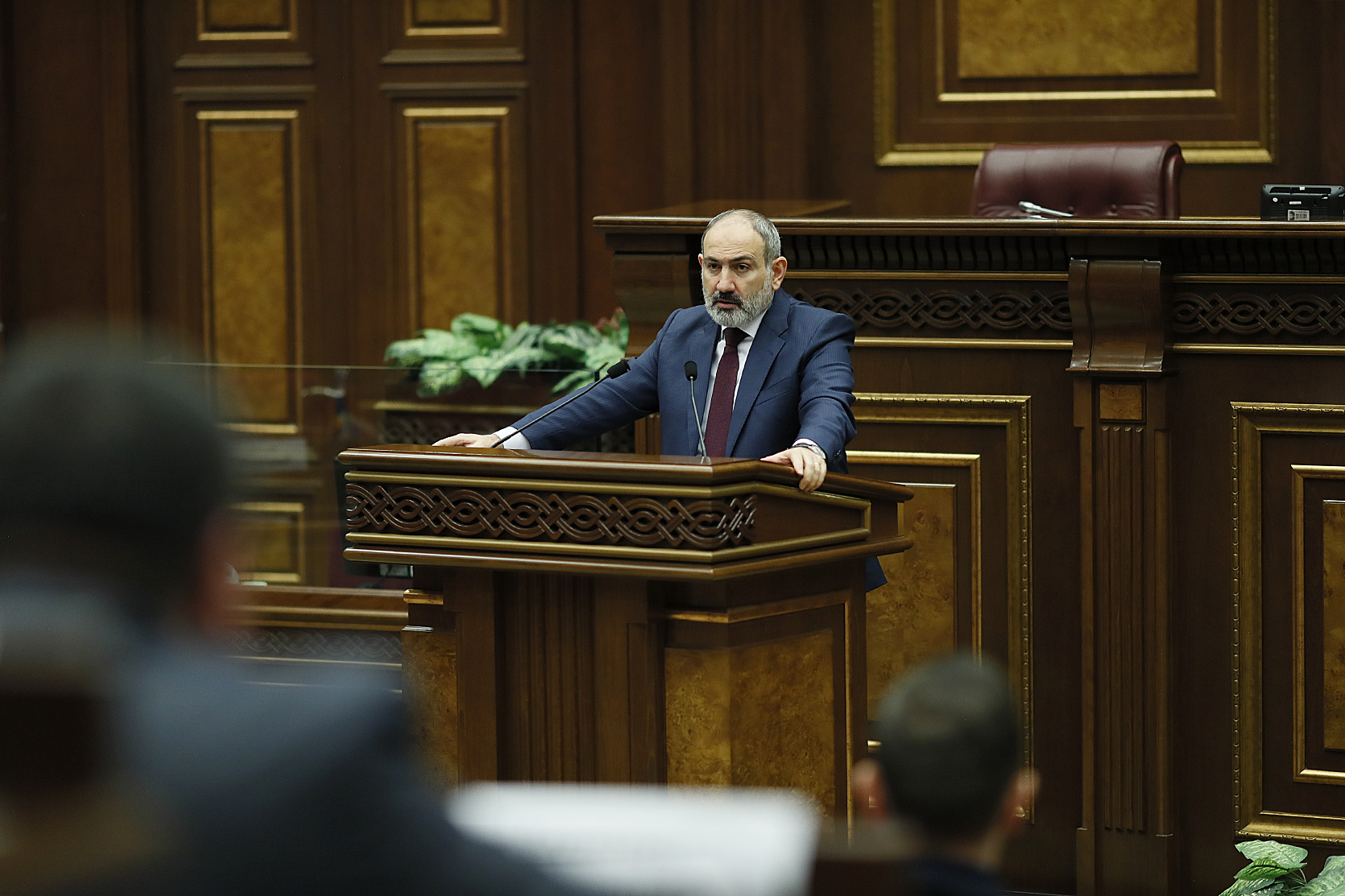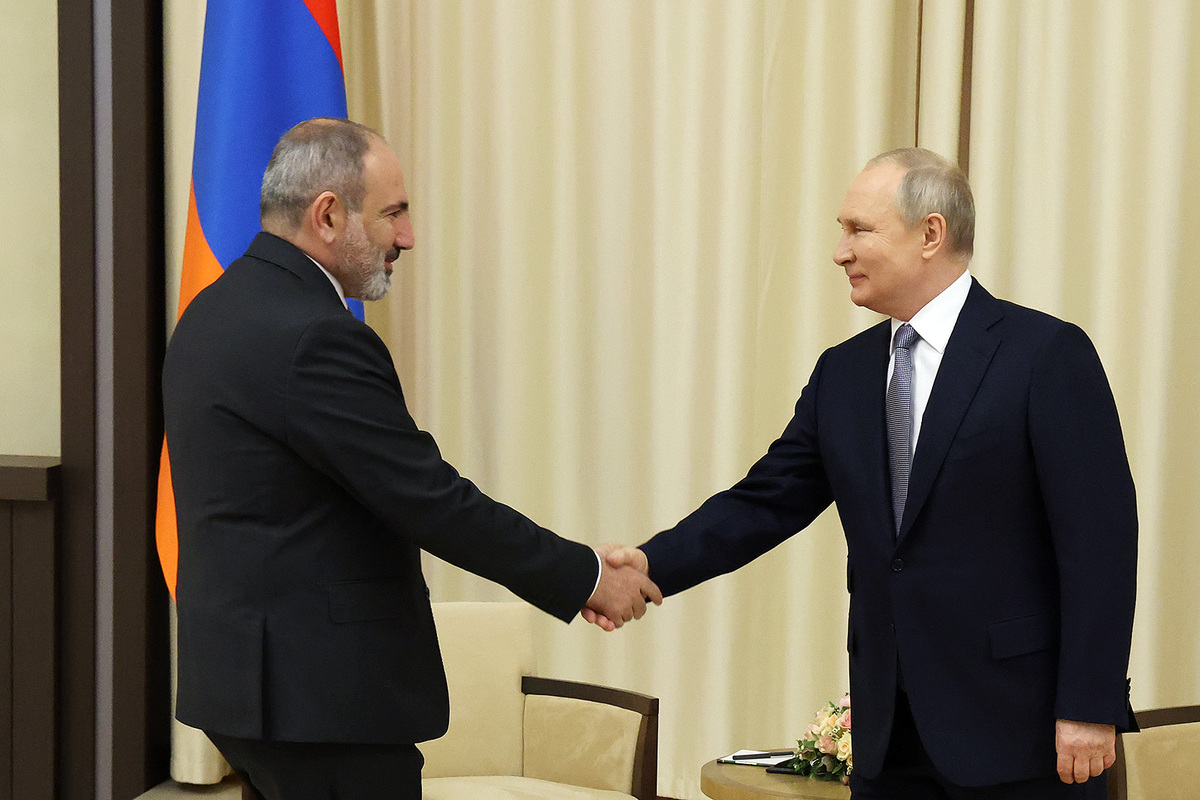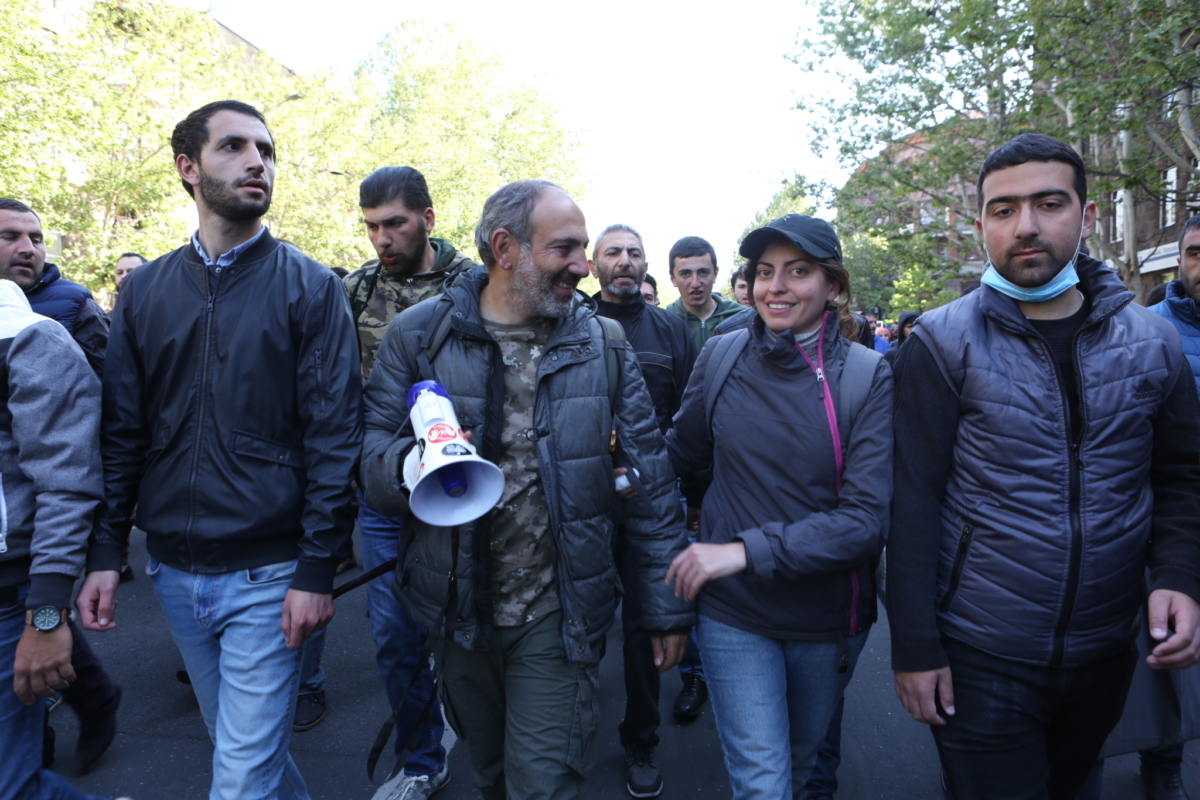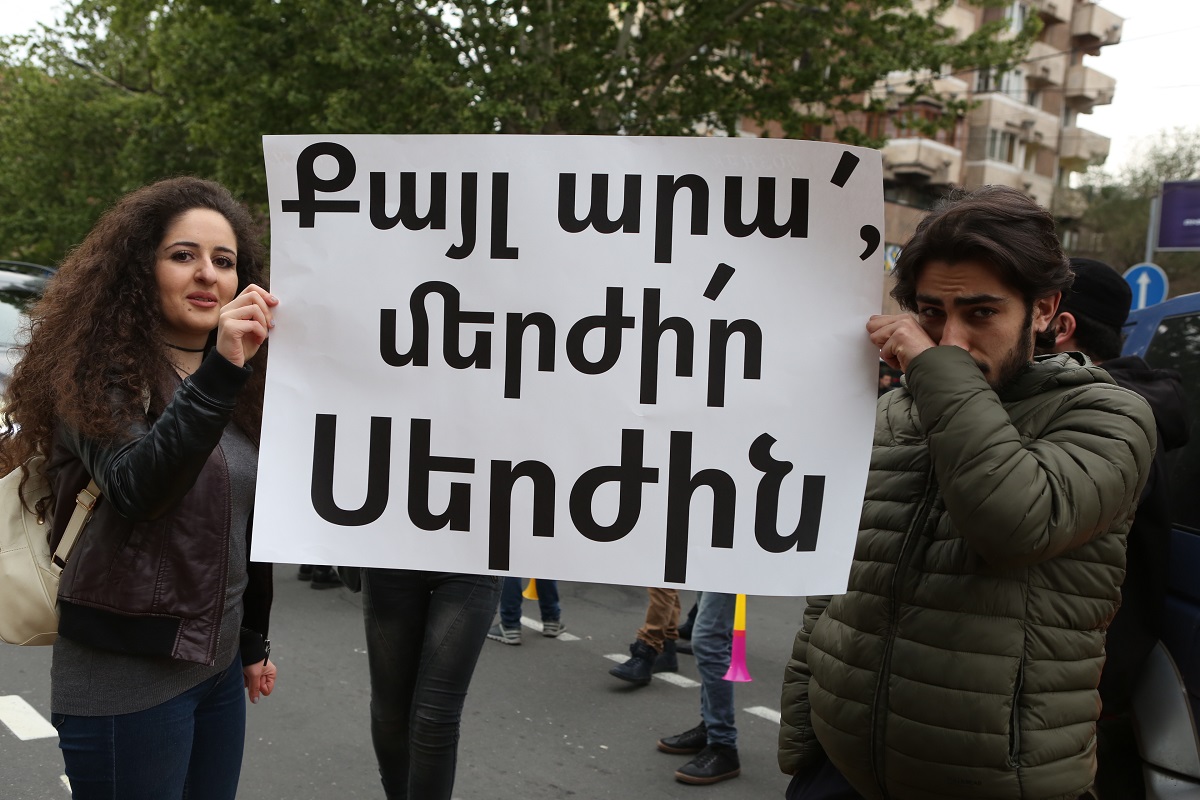Armenian opposition takes to streets - will there be a second Velvet Revolution?
Armenian opposition begins struggle to overthrow Pashinyan
Armenian opposition announced that from Monday, April 25, it will begin permanent street actions to protect Armenia and Nagorno-Karabakh from the “talentless” policy of the current authorities. The movement began in early April with a joint action of two opposition parliamentary factions in support of Nagorno-Karabakh. Their leaders said that Prime Minister Nikol Pashinyan was pursuing a “flawed policy of surrendering territories and begging for peace” and proposed strengthening defense capabilities instead.
Then their protests were divided, the oppositionists explained that they would wage a decentralized struggle. However, they have the same goal: to bring the people to the streets and force the authorities to leave. This is the same principle that Nikol Pashinyan, the leader of the Velvet Revolution and former oppositionist chose to ensure the change of power in 2018.
Today’s opposition is divided into two wings. One is led by former President and Prime Minister Serzh Sargsyan, who lost power as a result of the revolution. The second wing is associated with ex-president Robert Kocharyan.
At the same time, opposition leaders claim that they are fighting not to come to power, but to eliminate the current one. However, it is still unknown what exactly the opposition proposes instead of the policy of the current authorities.
The statement of the Prime Minister of Armenia, which served as a pretext for the start of active opposition actions, an assessment of Nikol Pashinyan’s speech, what forces are joining the fight, as well as opinions about the protest movement and social media’s reaction to the protests.
- Armenian PM Pashinyan faces fresh calls to quit days before his talks with Russian president
- Freedom House: Elections are free in Armenia, media is not
- Op-ed: “Role of mediators decreases as Yerevan, Baku enter direct dialogue”
It all started with PM Pashinyan’s statement
The reason for a wave of protests and outrage in society was the statement of the Prime Minister of Armenia from the rostrum of the Parliament on April 13. Nikol Pashinyan stated that the international community expects Armenia to recognize the territorial integrity of Azerbaijan and “lower the bar on the status of Nagorno-Karabakh from the Armenian side”.
This statement was criticized not only by the opposition, but also by most of the expert community. The country once again started talking about “a betrayal of the interests of Armenia” and “the prime minister’s conspiracy to surrender territories” with Azerbaijan and Turkey.
Political scientists explained that “lowering the bar” implies a status within Azerbaijan. The Prime Minister himself did not specify what he means by these words.
Former Foreign Minister Ara Ayvazyan told reporters that until the end of May last year, the international community had no such expectations:
“In my time, this was not the case. If you remember, there were several statements by the co-chairs [of the OSCE Minsk Group, mediators of the peace talks on the Karabakh conflict before the 2020 war], in particular, on December 3 and April 13. I think that the accents they made there fully corresponded to our national and state interests”.
Pashinyan’s response to criticism
In response to criticism addressed to him, Pashinyan said that the public had the wrong impression, his statement does not imply the withdrawal of Armenians from Karabakh:
“We say that people should not leave Karabakh, they should live in Karabakh, they should have rights, freedoms and a status”.
According to the Prime Minister, his political approach will provide an opportunity to “rid people out of the status of a “lamb for the slaughter”:
“Armenia is a sovereign state, and we must regain the right to make decisions. We are a country, not a stable. We are citizens, not lambs to be slaughtered who are waiting while in different places [countries] they decide how and how many of us to kill or forgive. We are a state, we are a nation, we are sovereign. Yes, we are proud. We are bleeding but we have dignity. And we will not allow our right to make decisions to be taken away from us”.
European Union supported Armenian Prime Minister
Doubts that have arisen in society about whether the international community expects “lowering the bar” were dispelled by the EU representative for the South Caucasus, Toivo Klaar. He regarded this statement of the Prime Minister of Armenia as “important and far-sighted”:
“Many challenges remain on the path to a comprehensive settlement, but it is important to move forward. Armenia enjoys EU support in search of a just peace”, wrote by a diplomat on his Twitter.
Sit-in will be replaced by other actions
The active phase of the opposition movement began on April 17, when the leader of the opposition parliamentary I Have the Honor faction Artur Vanetsyan launched a sit-in on Freedom Square in Yerevan. He said that he was not going to return home because “a critical moment had come” when neither articles, nor posts on social media, nor speeches could achieve anything. It is noteworthy that he began his action after a trip to Moscow, although he himself denies the connection between these events.
The oppositionist announced that the Pashinyan government is going to “abandon Artsakh”, and its goal is to thwart these plans:
“The government of Nikol Pashinyan has already begun to say and propagandize that Artsakh can be part of Azerbaijan. And if there is no confrontation inside Armenia now, if we don’t try to overthrow the Pashinyan government, then this process will definitely take place”.
Vanetsyan announced the beginning of the second stage of the struggle on April 25:
“We will all take to the streets together and with our permanent actions, actions of disobedience, we will create such a situation for these authorities that they will be forced to retreat and abandon their destructive plan”.
There are two parties in the I Have the Honor faction: the Motherland, headed by Artur Vanetsyan and the Republican Party of Armenia, headed by ex-president Serzh Sargsyan.
- Flag of discord: Yerevan at odds with Armenian opposition over Karabakh flag
- Armenian-Azerbaijani talks in Brussels – is EU trying to get ahead of Moscow?
- Armenian and Russian FMs meet in Moscow immediately after Pashinyan-Aliyev talks in Brussels
Hayastan faction intends to “eliminate the treacherous government”
Another opposition force in the parliament, the Hayastan (Armenia) faction, is associated with ex-president Robert Kocharyan. This political force operates separately from the I Have the Honor faction, but its leaders are confident that the action plan they have developed will inevitably lead to a change of power.
Representative of the Hayastan faction, Vice Speaker of the Parliament Ishkhan Saghatelyan delivered a video message to the people:
“Our country has reached such a situation that if it continues, the next stage for Armenia and Artsakh will be devastating. We are facing a real threat not only of new cessions of the territories of our Motherland, but also of the loss of statehood in general. Now is the time to act.
I announce that our team, with all our resources, with thousands of our compatriots and supporters, are going out to fight in the street in order to remove these authorities that are destructive to the nation. This is not a struggle for power, this is a struggle for the Armenian Artsakh, for statehood, for the existence of the Armenian people”.
Hunger strike of Karabakh war veterans
The day after Vanetsyan’s sit-in began, two young men who participated in the 2020 Karabakh war went on an indefinite hunger strike. Nver Kirakosyan and Arthur Avagyan stated that their goal is to protect Nagorno-Karabakh and Armenia, and for this they intend to “wake up the youth from a deep sleep”.
They said that they did not intend to join the opposition’s party struggle, their decision was made after the statement of the deputies of the NK parliament.
It was a call to the “brothers and sisters” of Armenia and the Diaspora to support the struggle of the Armenians of Nagorno-Karabakh for self-determination, not to allow “lowering the bar on the status of NK”.
2,200 people responded to the call of Nver and Artur to sign a petition stating that “Artsakh will never be part of Azerbaijan”. Among them are those who went through the war in Karabakh and the parents of the dead soldiers.
The action lasted 5 days, then its participants announced the end of the hunger strike.
“Seeing the number of people standing on this square and who signed the petition, Artur and I consider the goal of the hunger strike – to wake up representatives of the generation of independence – achieved at this stage. However, we know that there are more of them than those gathered here. We must meet and talk with them. Thus, Artur and I decided that we should not be limited to sitting here”, said Nver Kirakosyan.
Social media comments
It is still difficult to judge whether the opposition will be able to gain enough supporters, despite the fact that the popularity rating of the incumbent prime minister has recently become lower. Experts doubt, first of all, the fact that the opposition calling for a change of power is the very “former authorities” that the people abandoned in 2018, supporting the revolutionary Pashinyan.
What do people think – according to comments on social media:
“Russia is behind the action of Artur Vanetsyan. Pashinyan’s speech was anti-Russian. He did not name Russia, but it was clear which country he was talking about. I understand Pashinyan’s words that Russia took an active part in the tragic events for Armenia, and we should be a state, and not sheep in the hands of other states. So Vanetsyan started the fight. He and his associates have one goal – to do what the Kremlin needs”.
“Pashinyan once again threw off his mask and showed his true face, but there are thousands of people who continue to listen to his manipulations, spellbound. He always says the same thing: former authorities are always to blame for everything, and he is impeccably ‘clean’ and good. Take to the streets, support the fight against lies”.
“Both opposition forces want to return to power. They are not interested in anything but money and returning to their feeder to rob the people again.
“Street actions can be effective when they bring new ideas and when they are presented by charismatic leaders. In the absence of these factors, it is difficult to imagine the success of the movement”.










